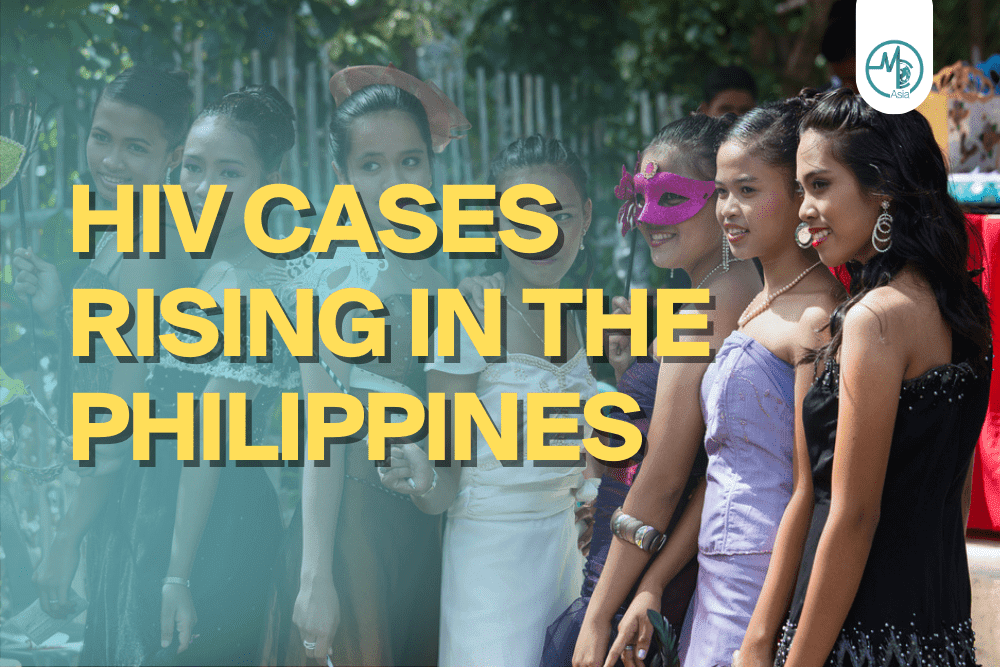Senator Christopher “Bong” Go, the chairperson of the Senate Committee on Health, voiced serious concern over the escalating human immunodeficiency virus (HIV) cases in the Philippines, particularly among teenagers.
As of May 2023, there were a total of 1,256 new HIV cases reported, with an average of 48 cases per day. The data disclosed by the HIV/AIDS and ART Registry of the Philippines revealed that 26 percent of individuals had an “advanced HIV infection” at the time of diagnosis, including 20 percent of cases among the youth.
The Concerning Statistics
The statistics from the HIV/AIDS and ART Registry of the Philippines indicated that 94% of the total cases were male, while 6% were female. Among the reported cases, 32% were in the youth age group of 15 to 24, with 94% male and 6% female.
In addition, the Department of Health (DOH) highlighted six HIV-positive pregnant women aged between 19 and 28 years old. Since 2011, authorities have reported a total of 754 women as pregnant at the time of their HIV diagnosis. The health department also reported 132 deaths among individuals diagnosed with HIV, spanning various age groups.
According to the data, 8% of the reported deaths were in the 15-24 age range. This emphasises the vulnerability of the youth to HIV-related complications. In terms of treatment, 1,252 individuals with HIV were enrolled in HIV treatment hubs, undergoing Anti-Retroviral Therapy (ART). This included 49% aged 25-34, 30% aged 15-24, 18% aged 35-49, 2% aged 50 and older, and two individuals less than 15 years old.
Stigma towards HIV
According to Sophia Gabrielle Suplico RMT, the National Rapid HIV Diagnostic Algorithm (rHIVda) Coordinator, fear of stigma, discrimination, and social repercussions discourages people diagnosed with HIV from seeking testing, leading to delayed diagnosis.
Social stigma: People living with HIV/AIDs (PHL) might encounter social isolation, rejection, or discrimination due to misconceptions about how the virus is transmitted.
Fear and Misconception: Misconceptions that HIV can be easily transmitted through casual contact or daily interactions. This may lead to feelings of shame, guilt or self-stigmatisation, impacting their mental health and well-being.
Importance of HIV awareness
Senator Go emphasised the necessity for a comprehensive and multi-disciplinary approach to address this growing health crisis. He emphasised the need for an immediate and proactive approach to educating the youth. He highlighted the importance of imparting knowledge about HIV awareness. This includes safe sex practices, prevention of teenage pregnancy, the dangers associated with illegal drugs, and the risks of alcoholism. According to the senator, education serves as a primary and fundamental step in addressing the increasing prevalence of HIV.
Prevention and Awareness
Ms. Suplico shared the best ways to prevent HIV from spreading. She said, “The most effective way to prevent HIV is practising safe sex by using condoms correctly and limiting sexual partners and avoiding the sharing of needles or syringes, especially in a healthcare setting.
“The best way to spread awareness is through education because it offers accurate and accessible information about HIV transmission, prevention and testing through educational campaigns and informational materials. Another way is through media and technology to reach a wider audience.” She added.
Government initiatives
Senator Go emphasised the dual nature of HIV as both a health and behavioural concern. He highlighted the crucial role of DOH programs, including hospitals and Regional Specialty Centers.
Senator Go’s significant contribution includes his pivotal role in creating Republic Act 11959, the Regional Specialty Centers Act, signed into law by President Ferdinand “Bongbong” Marcos, Jr. The act focuses on establishing specialised centres to enhance the country’s capacity to handle infectious diseases, including HIV, demonstrating a proactive approach to public health concerns.
Furthermore, Ms. Suplico also highlighted the DOH’s focus on the youth as a key population in the fight against the condition. The government’s initiative, Pre Exposure Prophylaxis (PrEP), aims to make the drug more accessible for key populations, offering free or subsidised services.
Therefore, to address the rising cases, the DOH initiated the rHIVda expansion program. This increased the Certified rHIVda Confirmatory Laboratories nationwide to expedite HIV results and treatment plans. Thus, it prevents delays that could weaken the immune system.
NGOs like LoveYourself collaborate with university organisations for specific campaigns, partnering with government agencies to address various aspects of HIV/AIDS among the youth.
A Healthier Future
Senator Christopher “Bong” Go’s genuine concern over the rising cases in the Philippines, particularly among youth, serves as a rallying call for immediate action. Education emerges as a potent tool to dispel stigma and misconceptions. Together, through education, awareness campaigns, and proactive measures, there is optimism for reversing the trend and fostering a healthier future for the nation.

